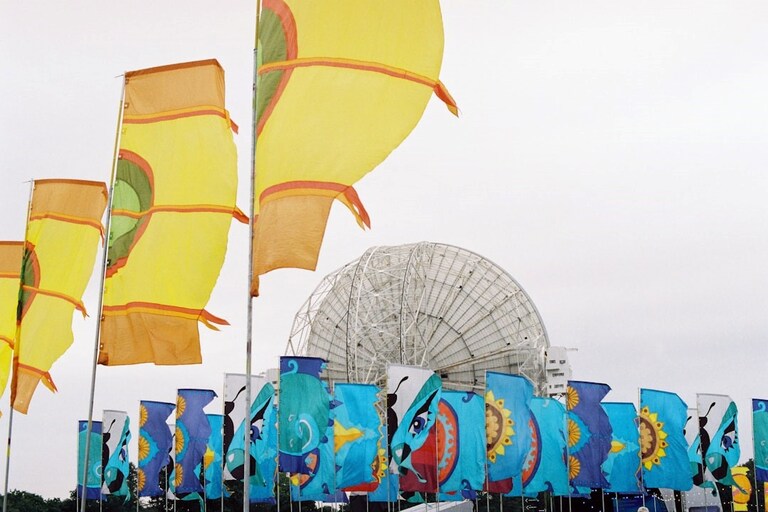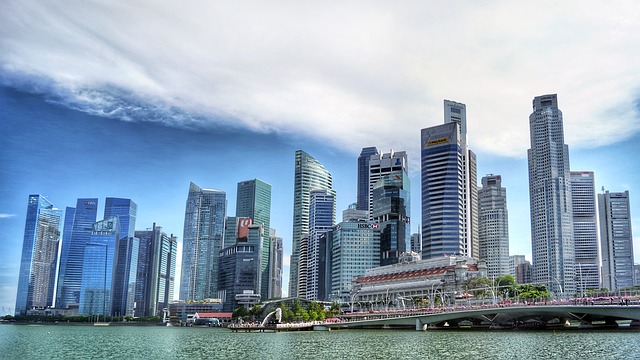
The Mopin Festival is celebrated by the Galo tribe of Arunachal Pradesh, primarily in the West Siang district of India. It usually takes place in April and is considered one of the most significant festivals for the Galo people, as it marks the beginning of the spring season and the agricultural cycle. The festival holds immense cultural and religious importance for the community and is celebrated with great zeal and enthusiasm.
Mopin is a harvest festival, and it is dedicated to the goddess Mopin Ane, who is believed to bring wealth, prosperity, and good fortune to the Galo people. The festival is also an occasion to seek blessings for a bountiful harvest and to ward off evil spirits and diseases. Preparation for the festival begins weeks in advance, with houses cleaned, traditional attire donned, and intricate decorations put up in homes and villages.
History and Significance of the Mopin Festival
The Mopin Festival holds deep historical and cultural significance among the Galo community, which primarily resides in the West Siang district of Arunachal Pradesh, India. The festival is believed to have ancient origins, rooted in the agrarian practices and religious beliefs of the Galo tribe.
Historically, the Mopin Festival was celebrated as a harvest festival, marking the end of the agricultural cycle and the beginning of a new year. It was a time for farmers to rejoice in the bounty of the harvest and offer thanks to the deities for a successful growing season. Over time, the festival evolved to incorporate elements of spirituality, community bonding, and cultural expression, becoming one of the most anticipated events in the Galo calendar.
The Mopin Festival holds great significance for the Galo tribe as it is associated with the goddess Mopin Ane. According to belief, the goddess brings prosperity, fertility, and good fortune to the tribe. She is considered the guardian deity of crops and livestock, and her blessings are sought to ensure a bountiful harvest and protection from natural calamities and evil spirits.
The festival also serves as a platform for preserving and promoting Galo culture, traditions, and folklore. Through rituals, songs, dances, and performances, the Galo people showcase their rich cultural heritage and pass down ancestral customs and rituals to younger generations. The Mopin Festival fosters a sense of identity, pride, and belonging among the Galo community, reinforcing their cultural roots and collective heritage.
The Mopin Festival has also gained recognition beyond the borders of Arunachal Pradesh, attracting tourists, researchers, and enthusiasts eager to witness its colourful rituals, vibrant performances, and warm hospitality. As a testament to the enduring spirit of the Galo people, the Mopin Festival continues to thrive and evolve, embodying the resilience, creativity, and cultural richness of one of India’s indigenous communities.
How is the Mopin Festival celebrated?
Galo tribe celebrates the Mopin Festival with great zeal and enthusiasm. The festival typically lasts five days and is observed with various rituals, cultural performances, feasting, and merry-making.
1. Preparation for the Mopin Festival Arunachal Pradesh
Preparation for the Mopin Festival is a meticulous and joyous affair that begins weeks before the actual event. Families and communities engage in a flurry of activities to ensure that they are ready to welcome the festival with full fervour and enthusiasm. One of the primary tasks is cleaning and decorating homes and public spaces with colourful banners, traditional motifs, and fresh flowers, creating an ambience of joy and festivity.
New clothes, especially traditional Mopin dresses, are purchased or stitched, and intricate jewellery is selected to adorn men, women, and children during the celebrations. Additionally, preparations for the sumptuous feasts that mark the festival commence, with ingredients for traditional Galo delicacies sourced and meals planned meticulously. Ritual items, including offerings for the deity Mopin Ane, are procured, ensuring that the religious aspects of the festival are observed with reverence and devotion.
2. Rituals and Invocations of the Mopin Festival
Rituals and invocations are integral components of the Mopin Festival. They are deeply rooted in the spiritual and religious beliefs of the Galo community in Arunachal Pradesh. The festival begins with solemn rituals conducted by the village priests, known as Miri and Potin, who act as intermediaries between the community and the divine. These rituals involve the invocation of Mopin Ane.
Offerings of rice, meat, fruits, and traditional beverages are made to the deity, accompanied by prayers and chants seeking her blessings for a bountiful harvest and protection from malevolent forces. The priests also perform symbolic acts of purification and sanctification, ensuring that the festival proceedings are conducted in a sacred and harmonious manner. Through these rituals and invocations, the Galo community reaffirms its spiritual connection with the divine and expresses gratitude for the abundance and blessings bestowed upon them.
3. Cultural Performances
Cultural performances are the heart and soul of the Mopin Festival. They reflect the vibrant heritage and traditions of the Galo community in Arunachal Pradesh. Throughout the festival, men, women, and children come together to showcase their talents through myriad performances that captivate audiences and celebrate the spirit of Mopin. The Ponung dance, a traditional folk dance, takes centre stage, with dancers adorned in colourful attire moving gracefully to rhythmic beats and melodic tunes.
Accompanied by the mesmerising sounds of drums, cymbals, and traditional instruments, the Ponung dance is a visual spectacle that expresses gratitude to Mopin Ane for her blessings and invokes prosperity for the community. Additionally, songs, chants, and storytelling sessions weave tales of folklore, mythology, and ancestral wisdom, enriching the cultural tapestry of the festival. Through these cultural performances, the Galo community honours its heritage, preserves its traditions, and fosters a sense of unity and pride that reverberates throughout the Mopin Festival.
4. Community Feasting
Community feasting is an integral part of the Mopin Festival. During the festival, families and communities come together to share sumptuous meals that reflect the rich culinary heritage of the region. Traditional Galo delicacies, such as rice, meat, fish, and various indigenous vegetables, are prepared with meticulous care and attention to detail. Special dishes, including Apong (rice beer), are brewed and served to add to the festive atmosphere.
The act of sharing Mopin food fosters a sense of unity, camaraderie, and hospitality among community members, reinforcing social bonds and strengthening interpersonal relationships. As people gather around communal dining tables, laughter, conversation, and the aroma of delicious food fill the air, creating memories that last a lifetime and embodying the spirit of togetherness and celebration that defines the Mopin Festival.
5. Socialising and Festivities
Socialising and festivities are at the heart of the Mopin Festival. During this vibrant occasion, people from all walks of life come together to partake in many activities that promote unity, joy, and cultural exchange. From visiting neighbours and friends to attending cultural events and traditional performances, Mopin is a time to reconnect with loved ones and strengthen community ties. Festivities include lively music, colourful dances, and traditional games that bring people together in laughter and merriment.
The festival also serves as a platform for showcasing the rich cultural heritage of the Galo tribe, with artisans displaying their crafts, musicians performing traditional songs, and storytellers sharing tales of folklore and legend. Through socialising and festivities, the Mopin Festival not only celebrates the spirit of togetherness but also reaffirms the cultural identity and collective strength of the Galo community, fostering bonds of friendship and solidarity that endure long after the festival has ended.
The Mopin Festival stands as a testament to the vibrant cultural heritage and rich traditions of the Galo community in Arunachal Pradesh. The festival brings people together through rituals, invocations, cultural performances, and community feasting in a spirit of unity, joy, and celebration.
It serves as a time for reflection, gratitude, and renewal, as well as an opportunity to honour the blessings of nature and seek the divine blessings of Mopin Ane for a prosperous year ahead. As the festival draws to a close, the echoes of laughter, music, and camaraderie linger in the air, leaving indelible memories and a sense of belonging reverberating throughout the community until the next Mopin Festival.
Experience the cultural vibrancy of the Mopin Festival with SOTC’s exclusive Arunachal Pradesh tour packages! Immerse yourself in the captivating traditions and festivities of the Galo tribe as you witness the joyous celebration of Mopin in the picturesque landscapes of Arunachal Pradesh. From colourful rituals to mesmerising cultural performances, embark on a journey of discovery and cultural immersion with SOTC.





Related Post
10 Famous Pilgrimage Destinations for Mahashivratri 2025 Celebrations
Mahashivratri Festival 2025: Date, History, and Key Celebrations
15 Best Street Food Places in Bangalore
Top Kumbh Mela Places & Locations to Visit for a Spiritual Journey
Kumbh Mela 2025 Date & Place: Full Schedule, Location & Travel Tips
Everything About the Next Maha Kumbh Mela 2025 – Dates & Travel Tips
Places to Visit in Varanasi: A First-Timer's Guide to the Holy City
10 Facts About Kashmir Valley: Kashmir Weather, History, Culture and More
11 Reasons Why Kashmir is called "Paradise on Earth"
Places to Visit in Ayodhya: A Pilgrim’s Paradise